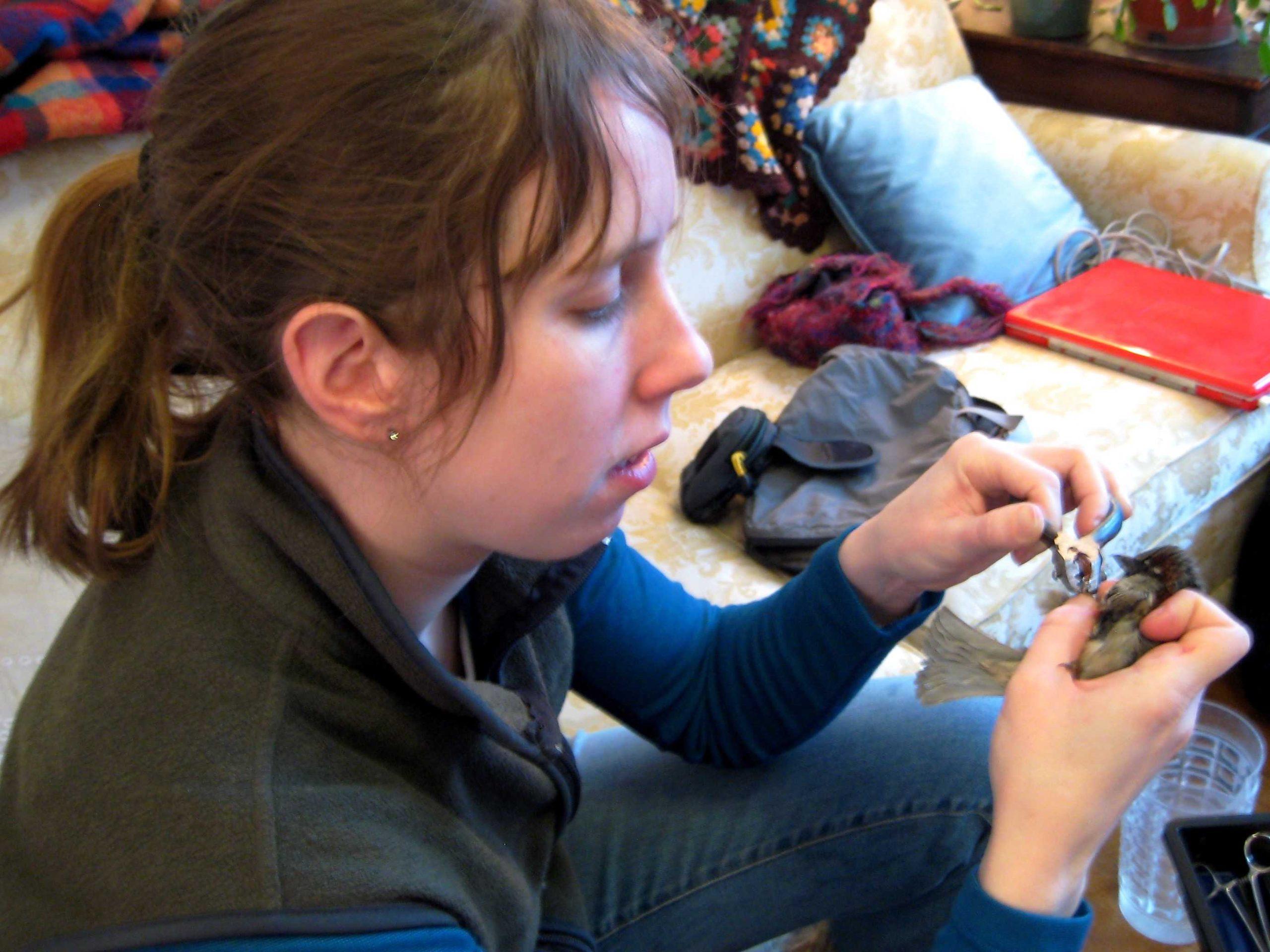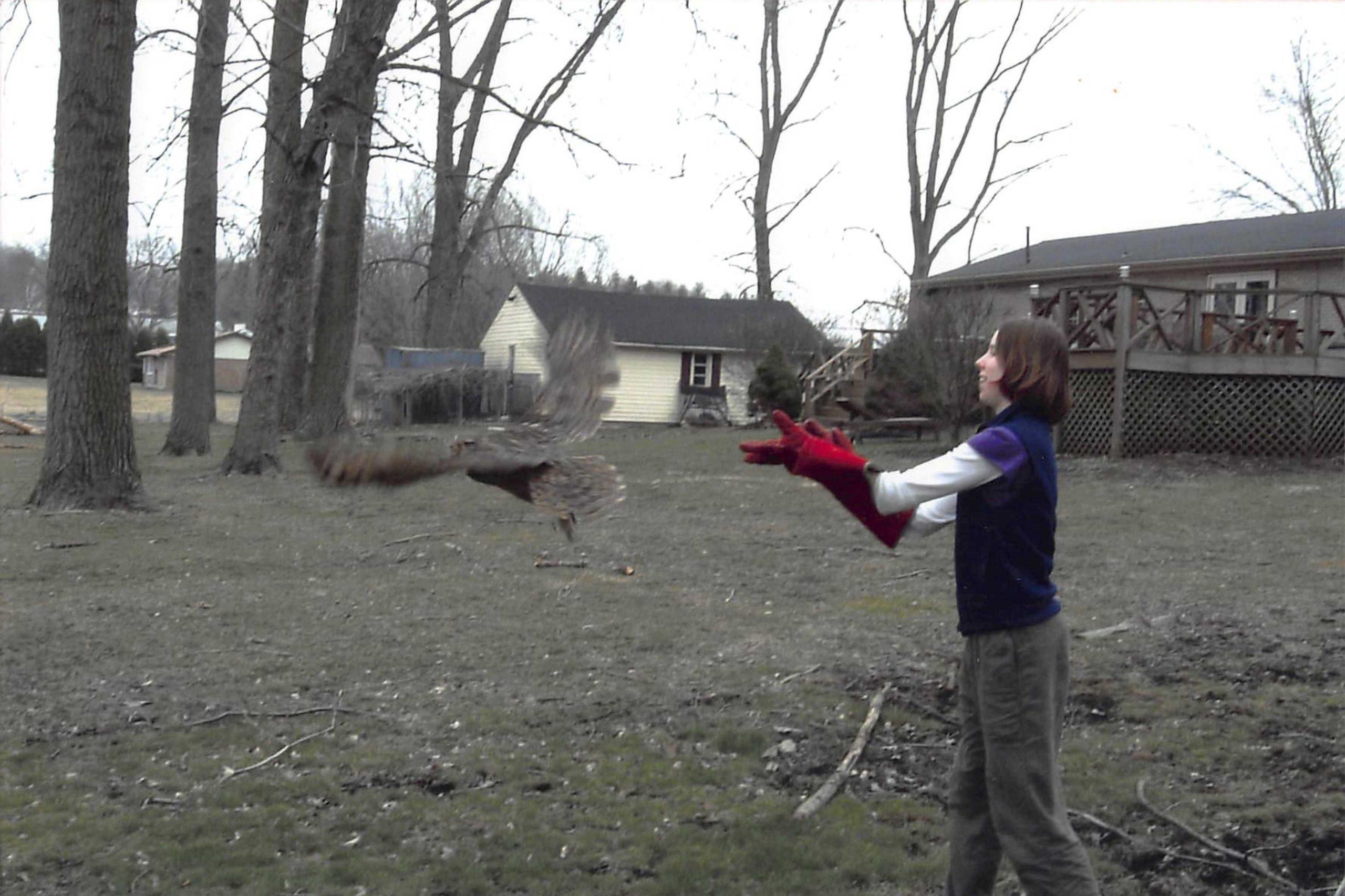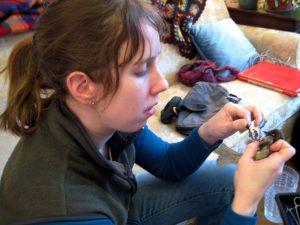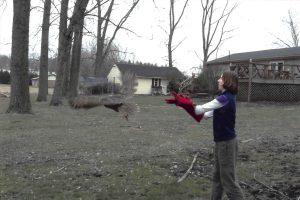An LSU science professor is under fire from PETA for experiments that have resulted in “tormenting and killing” hundreds of house sparrows.
Biological sciences professor Christine Lattin caught PETA’s attention several years ago when they discovered she had been placing trapping nets near bird feeders to study how stressful environments affect house sparrows. The organization said she punches holes into their legs, blasts loud music in their ears and places them into a cart to shake them.
Lattin was appointed to conduct research at the University in May. The stress levels of birds, which is why her experiments involve placing them in stressful environments. Other experiments have involved plucking birds’ feathers, putting small doses of oil in their food, placing them in cloth bags to increase stress and even euthanizing them in some cases.
“Animals feel pain, have interests, suffer, and therefore, we should take those facts into consideration whenever we are with them,” said PETA Senior Laboratory Oversight Specialist Alka Chandna*. “She’s only answering questions that can give her the ability to publish more papers, maybe get tenure, making her way through academia. If she thinks she’s answering any bigger questions, she’s dead wrong.”
Lattin is studying house sparrow birds because they’re an invasive species, and can eventually have a negative effect on native bird species competing for food and nesting cavities. Some of her work involves euthanizing animals to study their neurotransmitters and receptors in the brain, which she said is good because they’re not a rare species. Euthanizing birds is required for her research by the Connecticut Department of Energy and Environmental Protection, she said.
Lattin isn’t surprised by PETA’s criticism of her studies, but she believes the experiments are necessary to help the animals survive.
“[PETA is a] very extremist animal rights organization that is against all animal research, eating animals and even against pet ownership,” Lattin said. “We can only take action to help wildlife survive when we can understand what the negative effects of wildlife are, which is why my research on stress is necessary.”
Although hundreds of birds die as a result of her experiments, she said the number hasn’t reached into the thousands. She emphasized adhering to the “three R’s principle” when conducting research: reduce, refine and replace.
Lattin said she is an animal lover and took an early interest in nature and the environment. She used her allowance to make donations to the nature conservancy and spent a majority of her time outdoors. She also broughtnew pets into her home. She was the first in her family to go to college and eventually majored in linguistics and minored in biology at Swarthmore College in Pennsylvania.
Lattin said that her research lab has received both public and private funding from the United States Environmental Protection Agency, the Howard Hughes Medical Institute and the American Ornithologists’ Union.
Understanding the threats and stress wild animals face are some of the most critical things Lattin spends her career on.
Besides studying neurotransmitters and hormones in animals, Lattin has also studied the oil impact on habitats. She designed a test to discover if a small amount of oil has negative effects on animals’ health and survival in an attempt to see if a disruptive stress response would occur. She mixed small amounts of oil into the food of house sparrows, and has concluded there are no behavioral effects while looking at potential biomarkers in the exposure in the blood.
“When animals are exposed [to] diets with a really, really small amount of oil, they are no longer able to mount a normal stress response,” Lattin said. “Stress is something that can be harmful, but it’s also something that can help animals survive and to be able to cope successfully with stressors.”
That experiment was heavily criticized by PETA.
“She force-fed birds crude oil, saying how it’s supposed to represent the BP Oil Spill,” Chandna said. “For all the pain and suffering involved, we feel that Christine Lattin’s experiments need to be stopped.”
When Chandna and her team learned in March that Lattin would be working at the University, PETA sent LSU President F. King Alexander a letter, expressing concern for Lattin’s lab. PETA held a protest on the University’s campus on Aug. 21. The University released a statement saying Lattin’s research complies with the Ornithological Council’s Guidelines for the Use of Wild Birds in Research.
“New LSU Assistant Professor Christine Lattin studies the physiological effects of stress on wildlife,” the statement said. “Wild animals become stressed from a variety of sources including predators, rivals and severe storms, and Dr. Lattin studies how wild animals respond to these stressors. Specifically, she looks at the hormones and neurotransmitters that respond to stress in order to see how they change from being helpful to harmful.”
PETA created a petition on their website for people to express their concern about Lattin’s experiments to University officials. Yale University received more than 140,000 emails from the organization when Lattin was employed there. The petition urges readers to notify LSU of how Lattin is “tormenting” the birds, and how many of the birds are “killed” when the experiments are completed.
“Her saying [we are extremists] is name-calling. It’s weak [and] cowardly,” Chandna said. “[Lattin] can do all the name-calling she wants and tell all the lies she wants like this business of us being anti-pet, but that doesn’t address the fact that her research is useless, worthless and cruel.”
*A previous version of this story misspelled Dr. Alka Chandna’s last name. It has been updated with the proper spelling.
LSU professor ‘tormenting, killing’ birds for research, PETA says
August 28, 2018
LSU biological sciences professor Christine Lattin is under fire from PETA for her treatment of birds in her studies.
More to Discover














